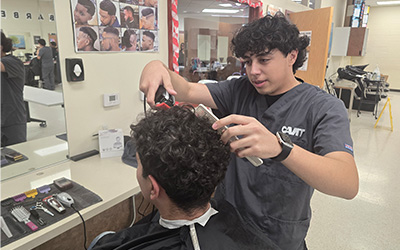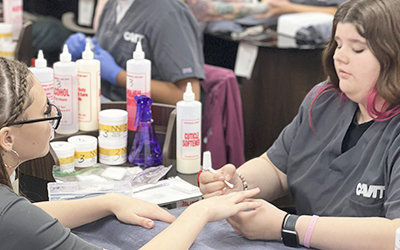

School-Based Wellness Clinics
Every technical and hands-on skill that students master in their CAVIT program is performed on clinic days. Students manage their clinics and perform services to community residents and pets. Check out FY25 client survey results.

Animal Day Spa
Students provide an environment for the community to bring their animals in for needed services.
Call520-423-2999

Barbering Clinic
Students apply their skills to provide barbering services including haircuts, beard trims, and shaving.
Call520-316-4366

Dental Clinic
Students provide community members with basic services and brushing/flossing education.
Call520-423-2998

Hair Clinic
Students apply their hairstyling skills to community residents seeking beauty services.
Call520-423-2990

Massage Spa
Students apply their skills to provide massage services that enhance the health and well-being of residents.
Call520-316-4370

Nail Clinic
Students offer a range of services including manicures and pedicures along with nail enhancements.

Pharmacy Clinic
Students mix up numerous moisturizing samples including lotions and lip balms for clinic participants.

Wellness Clinic
Medical Science students run a wellness clinic that provides basic wellness screenings to community members.
Call520-316-4364